Shakespeare`s Tragedies
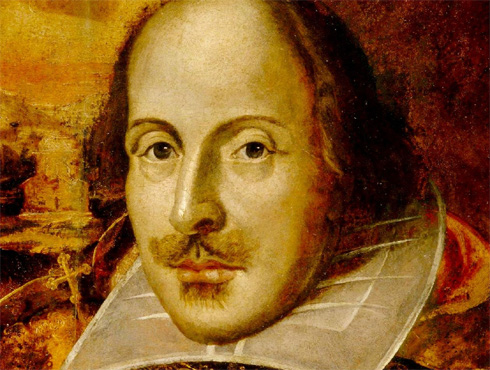
The Bearded Bard Lives On...
All that the bearded bard had some four and a half centuries back are mere words. With his rich repertory and authentic inventions, William Shakespeare has gifted English literature with masterpieces, which are just that – masterpieces. The Master of English would have turned 448 today… And if he would have lived for so long, he sure would have transformed English literature into an unparalleled treasure chest. Though he is best known as a multi-talented genius, William Shakespeare’s forte, undoubtedly, is drama. His gift of about 37 plays was nothing short of a Midas touch as far as the quality of English is concerned. On his 448th birthday, here’s taking a look at some of the brilliant tragedies that the playwright is almost synonymous with!
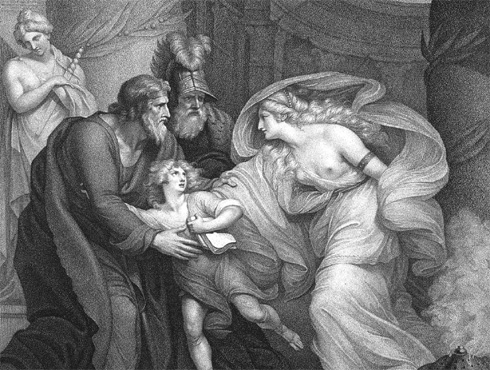
Titus Andronicus
Widely believed to have been written around 1588-93, ‘Titus Andronicus’ is possibly Shakespeare’s most violent work. It is thought to be the first ever tragedy that the playwright had composed and heavy resonances from the revenge plays of his contemporaries can be drawn in the play. The eponymous play is the tale of Titus, a fictional general in the Roman Army, whose vendetta against Tamora, Queen of the Goths, forms the crux of the play. The tragedy uses a lot of graphic violence, and soon fell out of favour of the Victorian audience. However, towards the middle of the twentieth century, Titus Andronicus rose to prominence yet again.
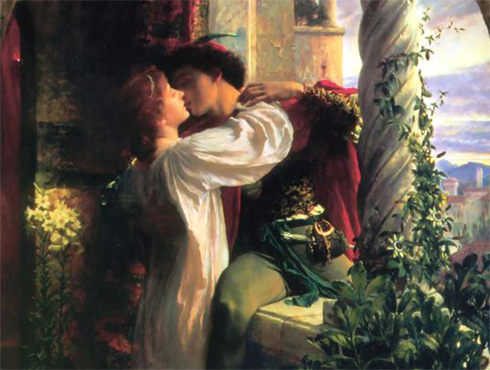
Romeo and Juliet
The timeless tale of the ‘star-cross’d’ lovers has been used and abused, time and again, in the span of about four centuries since ‘Romeo and Juliet’ was born out of the quill of William Shakespeare. Every single love story where Fate plays villain and parents act as spoilsports, are unanimously designated the position of ‘Romeo and Juliet’. Till date, Shakespeare’s rendition of the unfortunate lovers is the most famous love story. Romeo and Juliet’s dedication towards each other in the face of extreme clannish atrocities and exceedingly adverse situations are what makes for the likeability quotient in ‘Romeo and Juliet’. The tragic romance is a proof of the extraordinary timelessness of William Shakespeare.
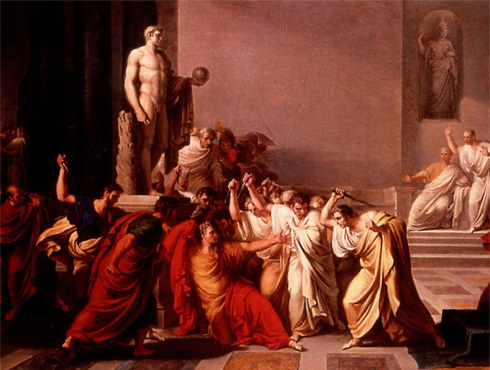
Julius Caesar
‘Julius Caesar’ is perhaps the most disputed play by Shakespeare as far as nomenclature is concerned. Named after the Roman Dictator, the play traces and dramatises the conspiracy and assassination of Julius Caesar. Caesar is killed in the middle of the play, and thereafter the tussle of power shifts towards Marcus Brutus and Mark Antony. Many have called Brutus the actual ‘hero’ of ‘Julius Caesar’, and yet others have lauded Antony as the protagonist of the play. The name of the play, however, still remains ‘Julius Caesar’. Considered one of the consummate works of William Shakespeare, this play infuses history and tragedy in ways that are beyond comprehension. The nuances, the fleshed out characters, the details of situations and plot, all make ‘Julius Caesar’ a highly commendable piece of art from Shakespeare’s quill.

Hamlet
Shakespeare’s longest play and perhaps the most influential play in the history of English, ‘Hamlet’ is the tragedy of Hamlet, The Prince of Denmark. The story revolves around the way Prince Hamlet exacts his revenge from his uncle Claudius after Claudius kills King Hamlet. The famous ‘to be or not to be’ appears in one of Hamlet’s monologues in the play. Circumnavigating the territories of revenge, anger, rage, incest and treachery, ‘Hamlet’ is now among the most famous plays of all times. The themes dealt with in the play still hold good – even a four-hundred-and-fifty years down the line!
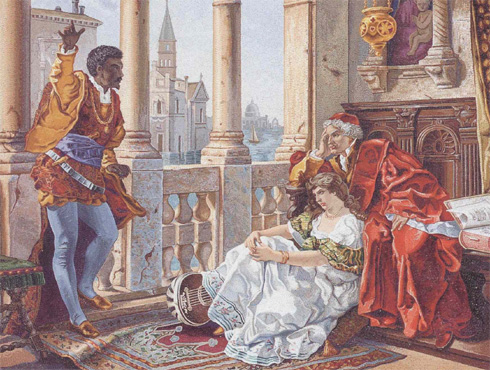
Othello
Written somewhere in the beginning of the 17th century, ‘Othello’ ranks among the best of Shakespeare’s tragedies. The story of The Moor of Venice is now considered a very potent piece of literature, and has had several screen adaptations – each extraordinary in its own uniqueness. The Hindi Film Industry too, had been proliferated by the play, and Vishal Bharadwaj’s ‘Omkara’ is the Indian screen adaptation of ‘Othello’. The play draws heavily from African mythologies and traces the unfulfilled marriage of Desdemona and Othello. With the backdrop of themes like miscegenation and Orientalism, and references of disloyalty and infidelity, ‘Othello’ is clearly a work of art – that has not lost its relevance even four centuries down the line. Instead, the play serves as a better reflection of the contemporary times.
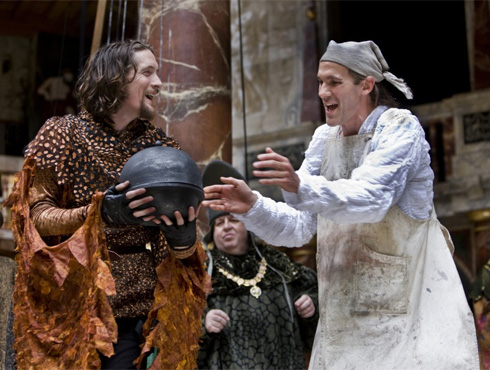
Timon of Athens
Considered one of the most obscure and problematic plays of Shakespeare, ‘Timon of Athens’ traces the trajectory of the life of an Athenian, Timon. It is generally considered one of Shakespeare’s tragedies, but critics are divided over its placement in that territory. With ‘Timon of Athens’, Shakespeare bids goodbye to the neat and clean compartments of comedies and tragedies. The play is now placed under the problem plays of Shakespeare along with others such as ‘The Merchant of Venice’, ‘Troilus and Cressida’, etc. ‘Timon of Athens’ has caused critics to debate and re-debate over the anomalous structure and numerous lacunae in the story. For the same matter, many have considered the play an unfinished work of Shakespeare. The play has had numerous adaptations – on television and in literature alike.

King Lear
In the words of renowned writer George Bernard Shaw, “No man will ever write a better tragedy than Lear.” One of Shakespeare’s most famous works, ‘King Lear’ is a tragedy that transcends all human definitions of the word ‘tragedy’. The play pushes the boundaries of human feelings and portrays, in fine details, the sufferings of human beings. Loosely based on the legend of King Leir of Britain, the play deals with the protagonist’s lethal decision to foolishly divide his property based on the flattery of two of his daughters and cruelly denying his third daughter her rights, and thereafter dwindling to madness. Many noted actors have played the coveted role of Lear, and have faced both appreciations and the wrath of critics and fans for their performances. In India, too, the last film which was based on King Lear was ‘The Last Lear’, in which viewers were treated to yet another stellar performance by renowned superstar Amitabh Bachchan.
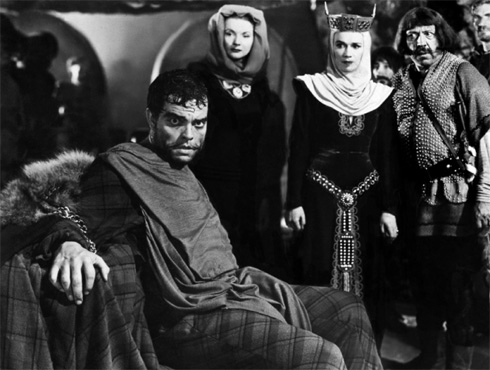
Macbeth
It has been noted that in each of his plays, William Shakespeare deals with common themes from human life and behavior which finally lead to their corruption and fall. In ‘Macbeth’ too, Shakespeare doesn’t deviate from his choice of themes. The playwright weaves, in intricate detail, the corrupting influence of power and ambition – something whose resounding echoes can be found in the present societal fabric as well. An amalgam of cruelty, power, corruption, murders, and myth, ‘Macbeth’ exposes the politics of those in power. The way Macbeth commits regicide to satisfy his blind ambition, egged on by his wife – Lady Macbeth – and then the numerous murders that constitute his maintenance of power form the structure of the play. ‘Macbeth’, too, is very popular among adaptations, and has formed the basis for many other texts and plays. The play undoubtedly strikes a sinister resemblance to many powerful people of the world in the contemporary times.
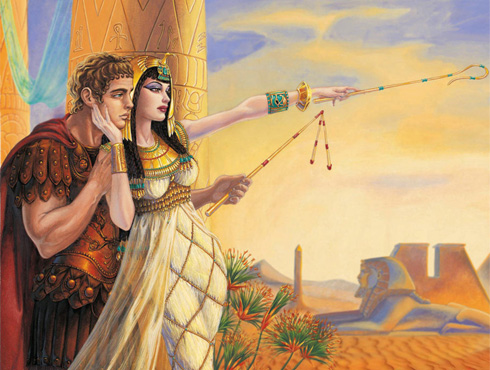
Antony and Cleopatra
Call it the nexus between the head and the heart or logic and emotions, ‘Antony and Cleopatra’ as a play shifts between the two ends of the spectrum with an amazing ease. The play deals with Mark Antony, one among the three who constituted the triumvirate of Rome after the death of Julius Caesar, and Cleopatra, the Queen of Egypt. The play traces the relationship between Antony and Cleopatra from the end of the Parthian War till Cleopatra’s suicide. ‘Antony and Cleopatra’ is resonant with images of sensuality, symbolised by the femme fatale, Cleopatra. Characterized by innumerable shifts in location from the austere, logical Rome to the imaginative, alluring Alexandria, ‘Antony and Cleopatra’ is a play that has invited severely divided opinions from critics as far as the roles of the main protagonists are concerned. The play is steeped in complexity of human characters and does a splendid job of displaying the same in painstaking detail.
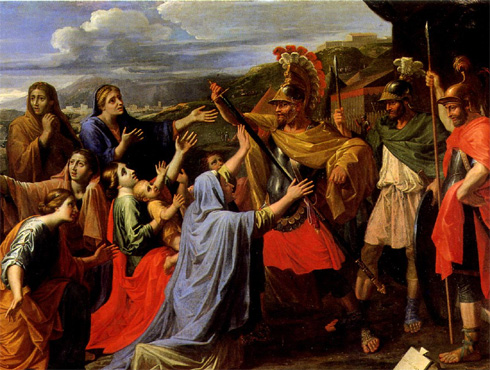
Coriolanus
Denoted the title of the ‘most opaque of all Shakespearean characters’, the protagonist of the eponymous play – Coriolanus – ranks equal to Shakespeare’s other tragic heroes, only that he is way more secretive as far as his motives are concerned. Coriolanus pauses for no soliloquy; there is hardly any revelation of his schemes. Fiercely planned and ingeniously expressed of all Shakespearean tragedies, ‘Coriolanus’ has been adapted and readapted many times by many famous writers. T.S. Eliot, for example, called it Shakespeare’s “greatest tragic achievement”.
By Ananya Bhattacharya







